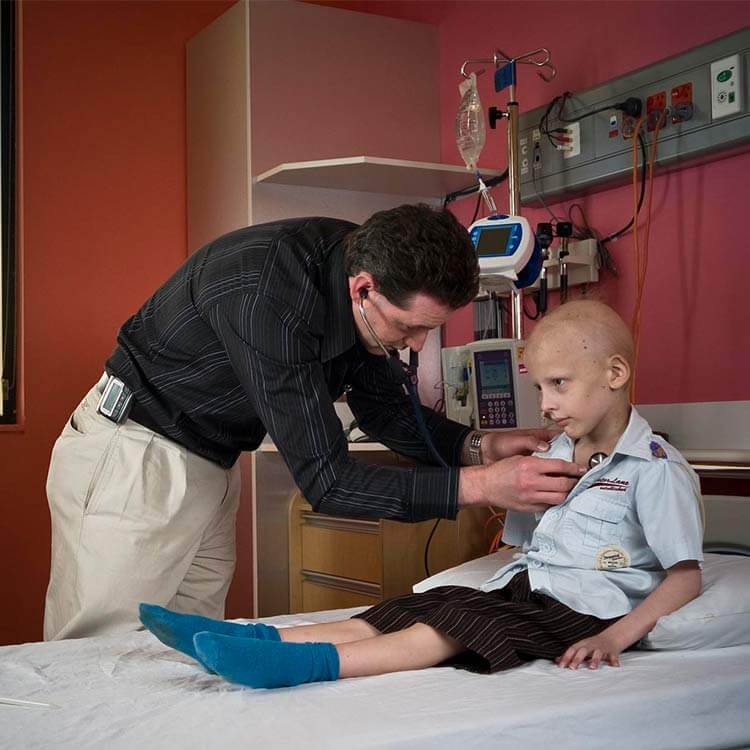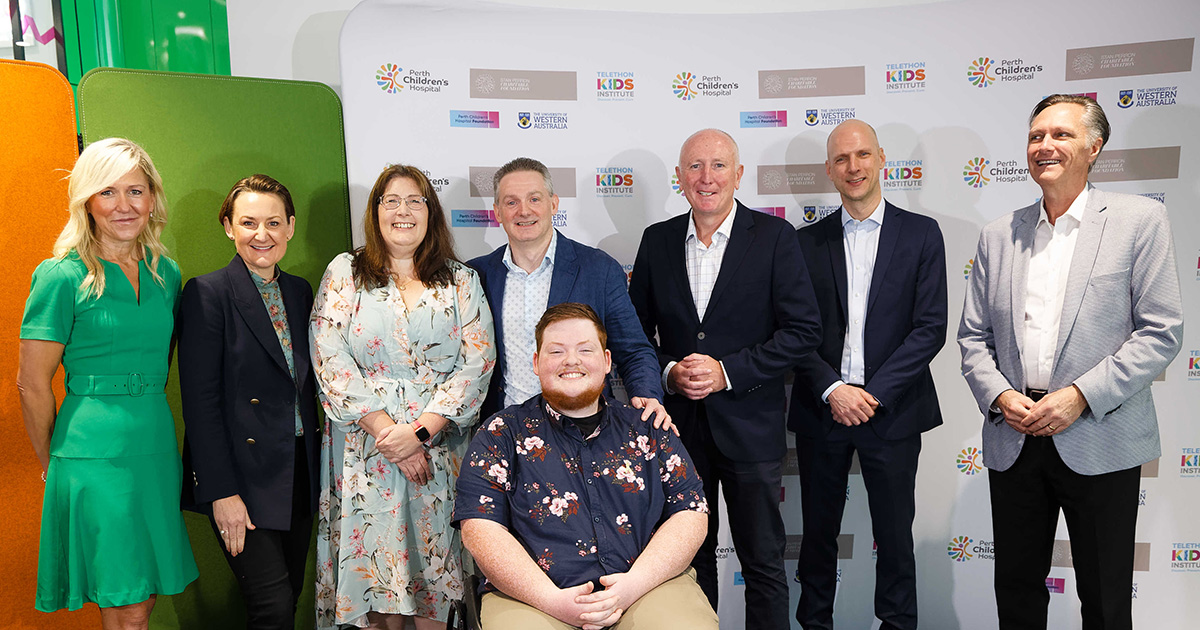Search
News & Events
Dad’s Dream Inspires Global Cancer FightThe Global Symposium on Childhood Brain Tumours is bringing the world's premier childhood brain tumour researchers and scientists together in Perth.
News & Events
Ethan's brain cancer battle inspires researchA new research scholarship to combat childhood brain tumours will be launched tonight in honour of two year old Perth toddler Ethan Davies.
News & Events
Researchers find genetic clue to cancer relapseCancer researchers at The Kids for Child Health Research have developed a new test that can rapidly detect the loss of genes in cancer cells.

News & Events
New childhood brain tumour drugs to be testedIt is the kids he treats in his role as a paediatric oncologist that motivate Dr Nick Gottardo in his work as a The Kids Research Institute Australia cancer researcher.

News & Events
World-first clinical trial in ‘man’s best friend’ could unlock treatment breakthrough for kids with cancerThe Kids Research Institute Australia is leading a unique clinical trial in pet dogs that could pave the way for a new immunotherapy treatment for one of the most common childhood cancers, Sarcoma.

News & Events
Trial of new antibody gives hope to children suffering from brain cancerChildren with aggressive brain cancers could soon have access to a significant new treatment option, using a unique antibody that stops cancer cells from repairing themselves.

News & Events
Philanthropic legacy dedicated to seeing all kids with cancer survive and thriveOne of WA’s biggest ever philanthropic gifts will transform childhood cancer research and treatment by improving outcomes for children with cancer and discovering more effective and less toxic treatments.
Research
Targeting cross-presentation as a route to improve the efficiency of peptide-based cancer vaccinesCross-presenting dendritic cells (DC) offer an attractive target for vaccination due to their unique ability to process exogenous antigens for presentation on MHC class I molecules. Recent reports have established that these DC express unique surface receptors and play a critical role in the initiation of anti-tumor immunity, opening the way for the development of vaccination strategies specifically targeting these cells.
Research
IFNβ Is a Potent Adjuvant for Cancer Vaccination StrategiesCancer vaccination drives the generation of anti-tumor T cell immunity and can be enhanced by the inclusion of effective immune adjuvants such as type I interferons (IFNs). Whilst type I IFNs have been shown to promote cross-priming of T cells, the role of individual subtypes remains unclear. Here we systematically compared the capacity of distinct type I IFN subtypes to enhance T cell responses to a whole-cell vaccination strategy in a pre-clinical murine model.
Research
Defining the molecular features of radiation-induced glioma: A systematic review and meta-analysisCranial radiation therapy is essential in treating many pediatric cancers, especially brain tumors; however, its use comes with the risk of developing second malignancies. Cranial radiation-induced gliomas (RIGs) are aggressive high-grade tumors with a dismal prognosis, for which no standard therapy exists. A definitive molecular signature for RIGs has not yet been established. We sought to address this gap by performing a systematic review and meta-analysis of the molecular features of cranial RIGs.
